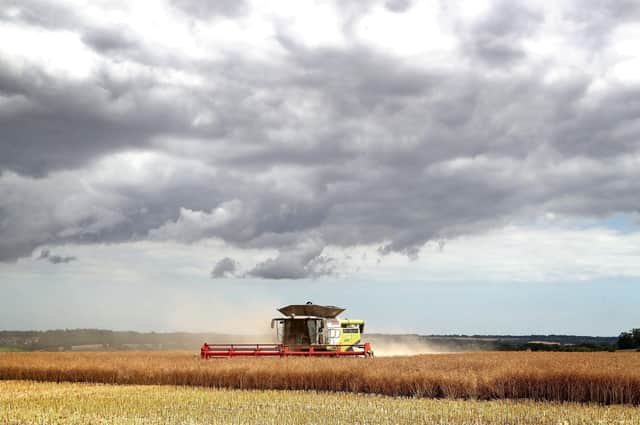Welcome for legislation which will pave the way for disease resistant crops produced using genetic editing techniques


Environment Secretary George Eustice said the Genetic Technology (Precision Breeding) Bill, which was presented in Parliament this week, would speed up the breeding of plants that have natural resistance to diseases and better use of soil nutrients allowing higher yields with fewer pesticides and fertilisers.
The Department for the Environment, Food and Rural Affairs (Defra) said precision breeding technologies, like gene editing, will give scientists the power to help farmers and producers develop plant varieties and animals with beneficial traits which could also occur through traditional breeding and natural processes, but “in a more efficient and precise way”.
Advertisement
Hide AdAdvertisement
Hide AdIt also stressed that gene technology is different to genetic modification (GM) techniques, where genes from one species are introduced to another.
Both the National Farmers Union (NFU) and Country Land and Business Association (CLA) have welcomed the legislation.
NFU Vice President David Exwood said: “This science-based legislative change has the potential to offer a number of benefits to UK
food production and to the environment.
“It will also provide farmers and growers with another tool in the toolbox as we look to overcome the challenges of feeding an ever-growing population while tackling the climate crisis,” he added.
Advertisement
Hide AdAdvertisement
Hide AdCLA President Mark Tufnell agreed, saying: “The fragility of global and domestic food security has been exposed by recent events and it is essential we have a full range of tools for the future.
"Bringing forward the publication of the Genetic Technology (Precision Breeding) Bill announced in the Queen’s Speech should be welcomed by farmers and environmentalists alike.
“Now more than ever, we need to focus on new technology that can deliver benefits for climate and the environment alongside crop and livestock production.
“These measures will play a crucial part in helping to manage our food security and strengthen our domestic supply chains. The potential benefits are high, and the risks are no different from conventional breeding.”
Advertisement
Hide AdAdvertisement
Hide AdBut the Soil Association said prioritising the Bill over the Food Bill, called for by the National Food Strategy, “smacks of a Government casting about for silver bullets”.
Soil Association Policy Director Jo Lewis said: “It avoids dealing head-on with the transformation needed in our food and farming system for true security and resilience. As highlighted by the National Food Strategy and Chatham House, agroecological farming and a shift to healthy and sustainable diets is the most evidence-based solution for climate, nature and health.
Government’s response to that recommendation is long overdue.
“We are deeply disappointed to see the Government prioritising unpopular technologies rather than focusing on the real issues – unhealthy diets, a lack of crop diversity, farm animal overcrowding, and the steep decline in beneficial insects who can eat pests.
Advertisement
Hide AdAdvertisement
Hide Ad“Instead of trying to change the DNA of highly stressed animals and monoculture crops to make them temporarily immune to disease, we should be investing in solutions that deal with the cause of disease and pests in the first place.”